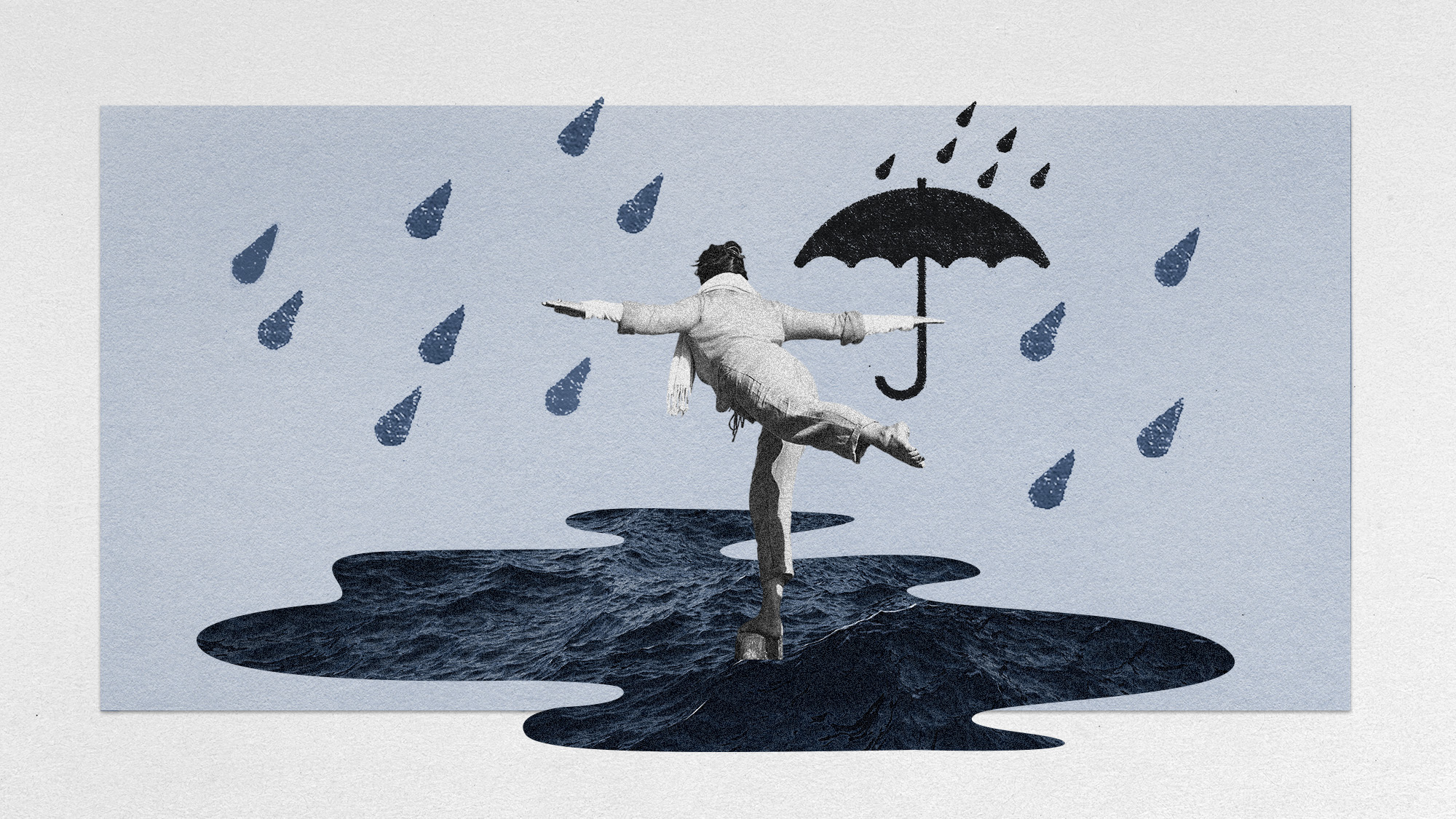Climate safe havens may be a thing of the past
Safe spaces are few and far between


A free daily email with the biggest news stories of the day – and the best features from TheWeek.com
You are now subscribed
Your newsletter sign-up was successful
Hurricanes Helene and Milton wreaked havoc on the U.S. south, including some areas that were once thought to be safe from the effects of climate change. These climate havens are seeing high levels of immigration as people look to move away from heavily affected regions. However, as global temperatures rise and climate change continues to worsen, no place on Earth will truly be free from the disastrous effects.
A climate haven no more
Climate safe havens are "areas touted by researchers, public officials and city planners as natural refuges from extreme climate conditions," said PBS News. In the U.S., these locations tend to be in the Midwest or quite inland from the coast. One of the most popular "safe" places was Asheville, North Carolina, where many have opted to move to because they "viewed this as a safe haven from wildfires out west and hurricanes that were hitting more coastal areas," Mike Figura, an Asheville-based real estate broker, said to NPR. But the pummeling from Hurricane Helene left some of the worst damage in North Carolina, with almost one-third of the hurricane deaths occurring in Buncombe County, which encompasses Asheville.
"Many folks seeking out climate-change-protected places in the U.S. have leaned toward small, progressive cities in relatively cool parts of the Midwest and East," said Yale Climate Connections. The problem is that climate change has caused both the atmosphere and the ocean to be warmer, which both act as fuel for a hurricane and allow it to reach further inland. While many in the coastal regions were directed to evacuate in preparation for the storm, most deaths still "occurred farther inland, in the mountainous terrain where challenges such as spotty cell and internet services, limited experience with hurricanes and more limited evacuation infrastructure" left people "feeling caught off guard," said an analysis by World Weather Attribution.
The Week
Escape your echo chamber. Get the facts behind the news, plus analysis from multiple perspectives.

Sign up for The Week's Free Newsletters
From our morning news briefing to a weekly Good News Newsletter, get the best of The Week delivered directly to your inbox.
From our morning news briefing to a weekly Good News Newsletter, get the best of The Week delivered directly to your inbox.
Climate change has been bringing more extreme weather all over the world from stronger hurricanes to wildfires to droughts. "What happened in western North Carolina really speaks to the challenge of atmospheric warming generating heavier rainfall," said Nicolas Zegre, director of the Mountain Hydrology Lab at West Virginia University, to The Washington Post. "That is a tremendous amount of water that has nowhere to go."
A misleading notion
The idea of a climate safe haven is misleading according to some experts. "Climate change is sort of a pervasive issue that is going to affect communities all over the world — not equally — but definitely it will impact everyone, everywhere in some way," Antonia Sebastian, a professor at the University of North Carolina at Chapel Hill, said to ABC News. Safe havens are simply seeing more severe effects more slowly than some other regions. "What I think people are kind of missing from their interpretation of 'climate haven' is this issue of likelihood," Samantha Montano, a professor of emergency management at Massachusetts Maritime Academy, said to NPR. "Just because it is less likely for a specific disaster to happen in one community does not mean that it is not going to happen in that community."
"The idea of a climate refuge itself is kind of an escapist fantasy," Billy Fleming, director of the McHarg Center at the University of Pennsylvania, said to Vox. "To the extent that a climate refuge even exists, it's not a particularly physical or geophysical phenomenon. It's social and economic." The climate crisis disproportionately impacts those of lower socioeconomic status as they have fewer means to protect themselves or evacuate high-risk areas. But even with money, it is "unlikely that any places will be truly safe from climate change — and even high-elevation, inland areas are vulnerable to drowning in a world where planetary warming is fueling heavier rains," said the Post.
A free daily email with the biggest news stories of the day – and the best features from TheWeek.com
Devika Rao has worked as a staff writer at The Week since 2022, covering science, the environment, climate and business. She previously worked as a policy associate for a nonprofit organization advocating for environmental action from a business perspective.
-
 Democrats push for ICE accountability
Democrats push for ICE accountabilityFeature U.S. citizens shot and violently detained by immigration agents testify at Capitol Hill hearing
-
 The price of sporting glory
The price of sporting gloryFeature The Milan-Cortina Winter Olympics kicked off this week. Will Italy regret playing host?
-
 Fulton County: A dress rehearsal for election theft?
Fulton County: A dress rehearsal for election theft?Feature Director of National Intelligence Tulsi Gabbard is Trump's de facto ‘voter fraud’ czar
-
 As temperatures rise, US incomes fall
As temperatures rise, US incomes fallUnder the radar Elevated temperatures are capable of affecting the entire economy
-
 The world is entering an ‘era of water bankruptcy’
The world is entering an ‘era of water bankruptcy’The explainer Water might soon be more valuable than gold
-
 Climate change could lead to a reptile ‘sexpocalypse’
Climate change could lead to a reptile ‘sexpocalypse’Under the radar The gender gap has hit the animal kingdom
-
 Why scientists want to create self-fertilizing crops
Why scientists want to create self-fertilizing cropsUnder the radar Nutrients without the negatives
-
 The former largest iceberg is turning blue. It’s a bad sign.
The former largest iceberg is turning blue. It’s a bad sign.Under the radar It is quickly melting away
-
 How drones detected a deadly threat to Arctic whales
How drones detected a deadly threat to Arctic whalesUnder the radar Monitoring the sea in the air
-
 ‘Jumping genes’: how polar bears are rewiring their DNA to survive the warming Arctic
‘Jumping genes’: how polar bears are rewiring their DNA to survive the warming ArcticUnder the radar The species is adapting to warmer temperatures
-
 Environment breakthroughs of 2025
Environment breakthroughs of 2025In Depth Progress was made this year on carbon dioxide tracking, food waste upcycling, sodium batteries, microplastic monitoring and green concrete
